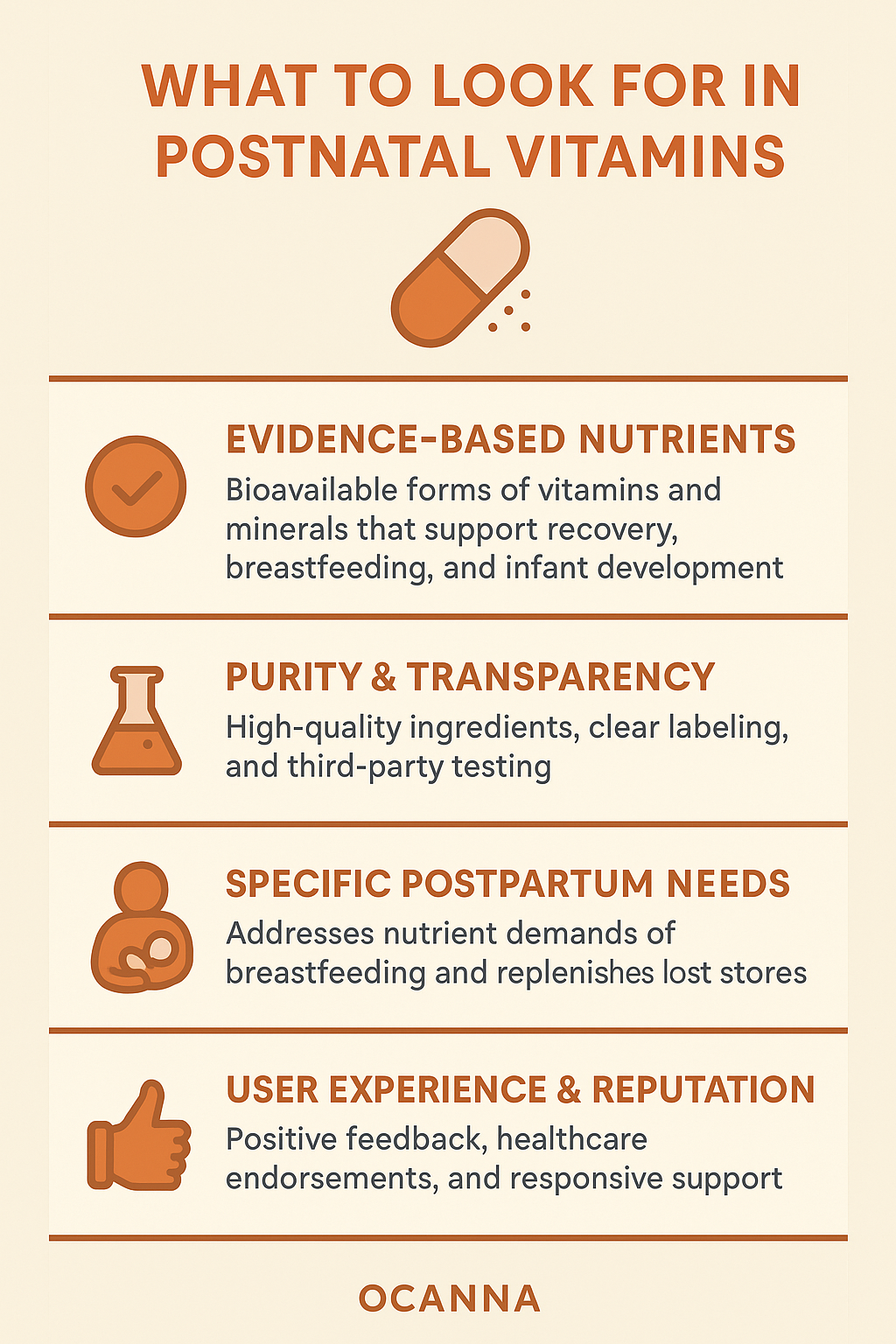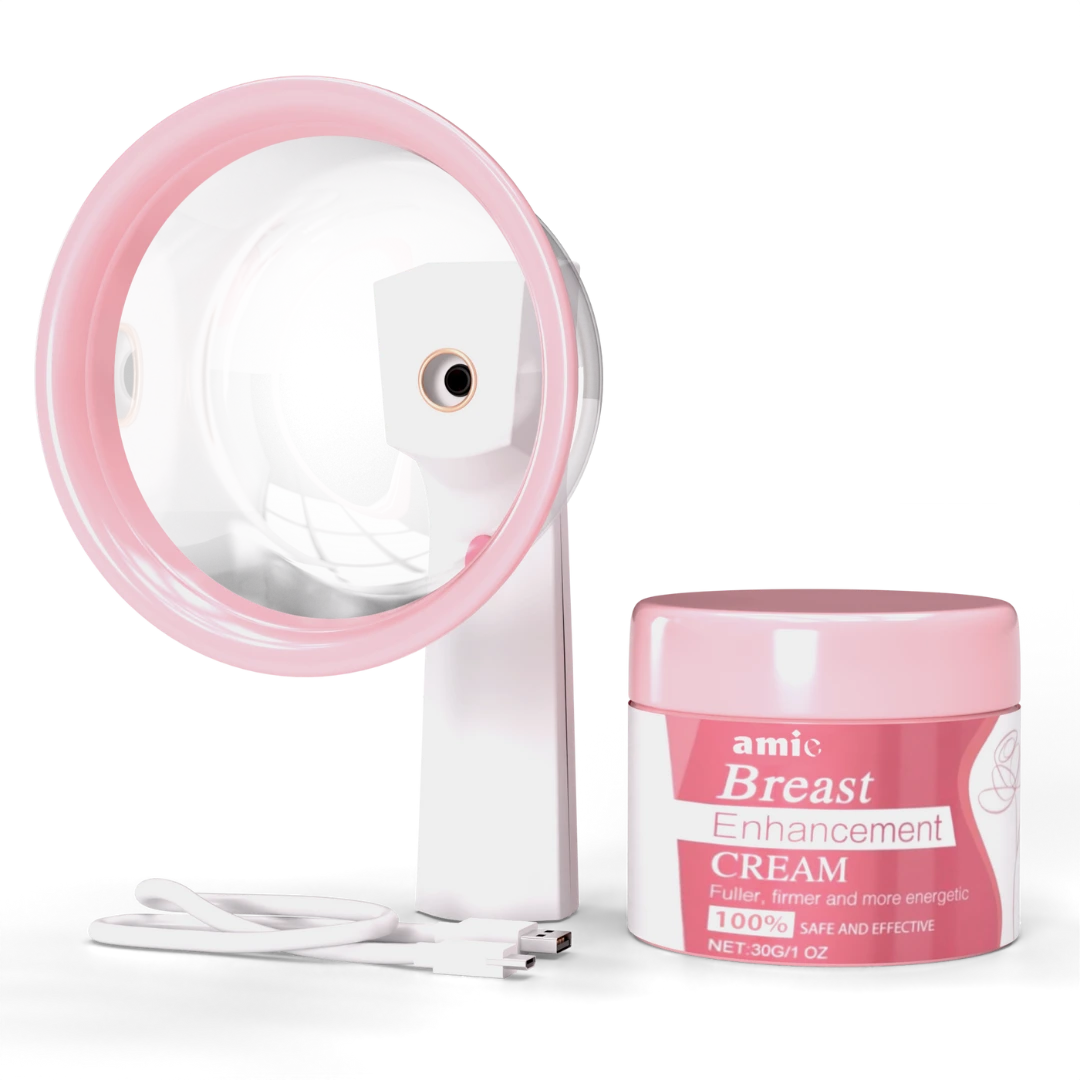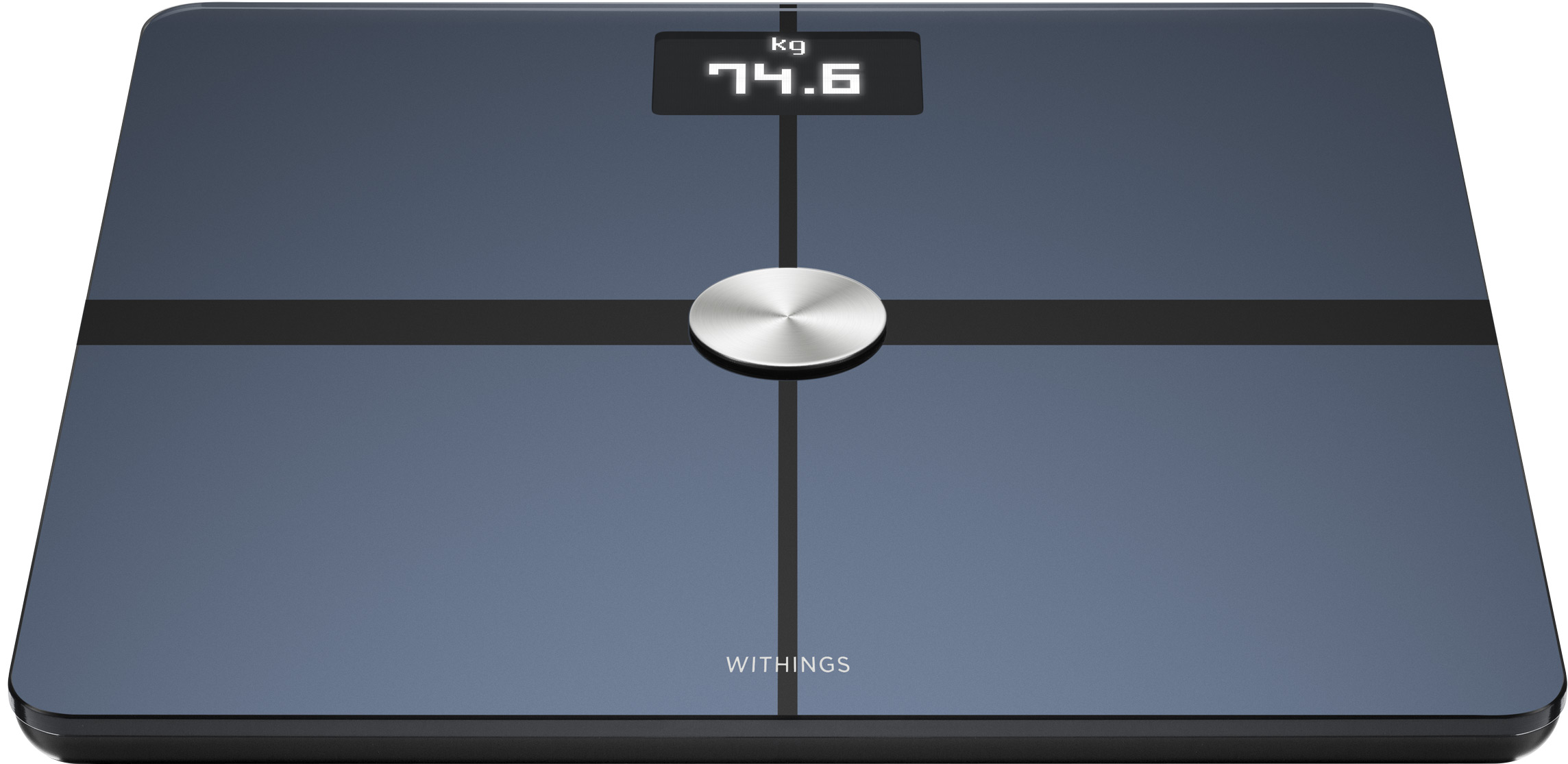The Best Smart Scales of 2025
Highlighting devices like the Withings Body+, Eufy Smart Scale C1, and Garmin Index S2. These scales offer advanced features such as body composition analysis, seamless app integration, and user-friendly designs to help track health and fitness progress effectively.
The Best Smart Scales of 2025
A smart scale offers more than just your body weight; it can provide insights into body composition, track trends over time, and sync seamlessly with health apps. Whether you’re focused on weight management, muscle gain, or overall wellness, a quality smart scale acts as a convenient, data-driven ally on your fitness journey.
We evaluated today’s top smart scales based on accuracy, connectivity, app integration, ease of use, and durability. Below, we share our top picks, explain our evaluation criteria, and help you decide which smart scale might best fit your lifestyle.
Summary of recommendations
- Best overall: Withings Body+
- Best budget-friendly option: Eufy Smart Scale C1
- Best for athletes and active users: Garmin Index S2
- Best premium design: QardioBase 2
- Best integration with Apple ecosystem: FitTrack Dara
Feel free to jump directly to our picks or read on to learn how we evaluated these products.
How we evaluated the best smart scales
Our criteria for selecting top smart scales included:
- Measurement accuracy and consistency: While no at-home scale is perfect, we favored those known for reliable weight measurements and decently accurate body composition estimates.
- Connectivity and app integration: Bluetooth or Wi-Fi connectivity that seamlessly syncs with popular fitness apps (Apple Health, Google Fit, MyFitnessPal) and wearable devices made some scales stand out.
- User-friendliness: A clear display, automatic user recognition, stable construction, and minimal setup hassle improved a scale’s ranking.
- Additional metrics: Some scales track body fat percentage, muscle mass, bone density, and even heart rate. While extra features aren’t necessary for everyone, they appeal to those who want more data.
Our top pick for 2025: Withings Body+
Why we chose Withings Body+:
Withings has led the connected health device market for years. The Body+ scale offers a wide range of measurements, reliable syncing, and a robust app ecosystem. Its intuitive setup, compatibility with numerous fitness apps, and multi-user support make it a strong all-around choice.
Pricing: About $100-$120.
Who should use Withings Body+:
Health enthusiasts, families, or individuals who want a well-rounded smart scale that provides more than just weight data, coupled with a polished app experience.
Best budget-friendly option: Eufy Smart Scale C1
Why we chose Eufy Smart Scale C1:
Eufy (by Anker) provides a cost-effective entry into smart scales. The C1 offers essential body composition metrics and stable performance, making it perfect for newcomers who don’t want to spend too much. Its no-frills approach and solid value make it a strong budget pick.
Pricing: Approximately $30-$40.
Who should use Eufy Smart Scale C1:
Users on a budget who want to explore body composition tracking without committing to a pricier device.
Best for athletes and active users: Garmin Index S2
Why we chose Garmin Index S2:
Garmin’s Index S2 caters to serious athletes and dedicated fitness enthusiasts. If you already use a Garmin watch or bike computer, the seamless integration and granular data analysis in Garmin Connect make this scale a logical addition. The trend graphs and advanced metrics help track progress over time.
Pricing: About $150.
Who should use Garmin Index S2:
Committed athletes, runners, cyclists, or triathletes who rely on Garmin’s ecosystem and want a unified platform for all their fitness data.
Best premium design: QardioBase 2
Why we chose QardioBase 2:
If aesthetics and innovation matter, QardioBase 2 delivers. Its clean, minimal look and user-friendly features like smiley face feedback differentiate it in a crowded market. While its “mood-based” approach to feedback isn’t for everyone, it’s a conversation piece that still provides accurate and reliable measurements.
Pricing: Around $130-$150.
Who should use QardioBase 2:
Design-conscious individuals who value style and are willing to pay for a premium look, alongside dependable smart features.
Best integration with Apple ecosystem: FitTrack Dara
Why we chose FitTrack Dara:
FitTrack Dara stands out for its deep integration with the Apple ecosystem, simplifying the user experience for iOS devotees. With a range of metrics, it appeals to data-oriented users who want more than basic body composition. While some advanced metrics are more motivational than diagnostic, it’s still a robust scale for Apple fans.
Pricing: About $80-$100.
Who should use FitTrack Dara:
Apple-centric users who want seamless integration with their Apple devices and appreciate a comprehensive view of their body composition data.
Is a smart scale right for you?
Smart scales are excellent tools if you’re goal-oriented, data-driven, or simply curious about your body composition. They help track progress over time, offering more insights than a standard scale. However, they’re not medical devices. Body fat, muscle mass, and other composition readings are estimates and can be influenced by hydration levels, time of day, and other factors.
If you find yourself fixating too much on daily numbers, consider using these tools as part of a broader health strategy. Periodic measurements and focusing on long-term trends, rather than day-to-day fluctuations, yield the best results.
Frequently asked questions about smart scales
How accurate are body composition measurements?
They’re decent estimates but not as accurate as clinical methods like DEXA scans. Use them for trend analysis rather than absolute values.
Do I need Wi-Fi or is Bluetooth enough?
Wi-Fi scales often update data without needing your phone nearby, while Bluetooth requires your phone in range. Wi-Fi is more convenient, but Bluetooth can still work well if you don’t mind syncing manually.
Can multiple family members use the same scale?
Yes, most smart scales allow multiple user profiles, automatically recognizing each person based on weight trends.
The bottom line
Smart scales combine convenience, connectivity, and data-rich insights to help you stay informed about your health journey. The Withings Body+ stands out for its comprehensive features and ease of use, while Eufy, Garmin, QardioBase, and FitTrack each cater to different needs—budget-conscious buyers, athletes, design enthusiasts, or Apple loyalists.
By choosing a scale that fits your tech ecosystem, budget, and health goals, you can turn daily weigh-ins into a more meaningful, motivating part of your routine.
Contents
● Summary of Recommendations
● How We Evaluated the Best Postnatal Vitamins
● Top 5 Postnatal Vitamins
● Key Nutrients Based on Leading Expert Recommendations
● Frequently Asked Questions About Postnatal Vitamins
Understanding Breast Tissue Changes
Pregnancy and childbirth place significantnutritional demands on a mother's body. After giving birth, it's crucial tosupport recovery, lactation, and overall health with the right nutrients.Postnatal vitamins are formulated to replenish depleted stores of key vitaminsand minerals, support energy levels, promote healthy breast milk production,and foster general well-being as you adjust to life with a newborn.

"The postpartum period is a critical window where proper nutrition can dramatically impact recovery, energy levels, and the quality of breast milk. Choosing bioavailable forms of key nutrients makes all the difference."
Dr. Rhonda Patrick, Nutrition Researcher
We evaluated today's top postnatal vitamins based on ingredient quality, dosage appropriateness, brand transparency, third-party testing, and customer feedback. Below, we share our top picks, explain our evaluation criteria, and help you find the best postnatal supplement for your journey into motherhood.
Summary of Recommendations
Best overall: Thorne Basic Prenatal
Best premium option: Ritual Essential Postnatal
Best for breastfeeding support: MegaFood Baby & Me 2 Postnatal Multi
Best budget-friendly option: Nature Made Postnatal Multivitamin
Best with DHA: Nordic Naturals Postnatal Omega-3 + D3

Top 5 Natural Enhancement Methods
After evaluating dozens of approaches and products, our research team identified these five methods as offering the most promising results for women seeking natural breast enhancement:

Our top recommendation combines two powerhouse techniques—specialized massage with vacuum therapy and targeted topical application—in one comprehensive system.
What It Is: The BreastBoost Pro™ Kit represents the cutting edge of non-invasive breast enhancement technology, featuring:
- Vacuum Pulse Massager (VPM-3000): This device uses calibrated suction and rhythmic pulsation to stimulate circulation, encourage tissue expansion, and activate cellular growth factors.
- Bio-Active Lift Cream: A scientifically formulated topical treatment containing phytoestrogens, peptides, and natural growth factors that work synergistically with the massage device.
The Science Behind It: The methodology, known as Dermal-Vac Enhancement Therapy (DVET), works through several evidence-supported mechanisms:

Improved Circulation
The gentle vacuum action increases blood flow to breast tissue, delivering essential nutrients and oxygen.
.webp)
Tissue Expansion
Controlled suction creates microexpansion of fat cells and connective tissue.
.webp)
Growth Factor Activation
The massage stimulates fibroblasts to produce more collagen and elastin.
.webp)
Phytoestrogen Delivery
The cream's bioactive compounds, particularly Pueraria Mirifica, interact with estrogen receptors in breast tissue.
User Experience: Analysis of verified reviews shows 86% of users reported noticeable improvements in firmness and appearance, with 72% noting improved positioning. Results typically begin to appear after 3-4 weeks of consistent use, with optimal results at 8-12 weeks.
Karen M., 37, shares:
"After breastfeeding two children, I barely recognized my chest. Three months with the BreastBoost Pro has brought back fullness I hadn't seen in years. The difference in how my clothes fit—and how I feel in them—is remarkable."
PROS
Comprehensive system addressing multiple aspects of enhancement
Non-invasive with no downtime
5 customizable suction levels for comfort and progressive results
Visible improvements in firmness and positioning
Rechargeable device with soft silicone cups
Risk-free 60-day guarantee
CONS

Requires consistent daily use for optimal results

Premium pricing (though less than a single surgical consultation)

Available exclusively online
Why we choose it
BreastBoost Pro™ is our top pick for natural enhancement. Dr. Williams notes: "Its multi-faceted approach combines mechanical stimulation with bioactive compounds to work with the body’s natural processes." Users report visible results in just 3 to 4 weeks, all without surgery or harmful additives. Plus, it’s backed by a 60-day risk-free guarantee.
#2

Specialized massage techniques designed to improve circulation, stimulate tissue, and enhance the lymphatic system function in the breast area.
The Science Behind It: Regular massage increases blood flow, potentially helping to:
- Improve tissue nutrition
- Enhance lymphatic drainage
- Stimulate natural growth factors
User Experience: Requires significant time investment and proper technique. Results are typically subtle and require consistent practice.
PROS
Attached and operate device
Can be incorporated into daily routine
May improve overall chest muscle tone
CONS

Results are modest compared to combination approaches

Difficult to maintain consistent technique

Time-intensive
#3

Oral supplements containing herbs traditionally used for breast enhancement, such as fenugreek, saw palmetto, and wild yam.
The Science Behind It: Some botanicals contain phytoestrogens or compounds that may influence hormone-responsive tissues.
User Experience: Mixed results, with some women reporting modest changes and others seeing little effect. May take 3-6 months for noticeable results.
PROS
Simple to incorporate into daily routine
May offer additional health benefits
Non-invasive approach
CONS

Variable results among users

Potential for interactions with medications

Slower to show effects than topical or mechanical methods
#4
.webp)
Targeted strength training routines designed to develop the pectoral muscles underlying breast tissue.
The Science Behind It: Building chest muscle can:
- Improve positioning and create a lifting effect
- Enhance overall upper body appearance
- Increase muscle tone beneath breast tissue
User Experience: Provides noticeable improvement in chest appearance, though primarily affects the underlying muscles rather than breast tissue itself.
PROS
Additional fitness benefits beyond appearance
Lasting results with maintained routine
No special equipment required for basic exercises
CONS

Doesn't address breast tissue directly

Requires consistent exercise discipline

May not achieve desired fullness effect
#5

Creams and serums containing ingredients like Volufiline™, Pueraria Mirifica, and peptide complexes designed to stimulate breast tissue.
The Science Behind It: Various active ingredients aim to:
- Stimulate fat storage in breast tissue cells
- Improve skin elasticity and firmness
- Support collagen production
User Experience: Generally modest results when used alone, with better outcomes when combined with massage techniques.
PROS
Easy to incorporate into existing skincare routine
Non-invasive approach
May improve skin texture and appearance
CONS

Limited effect when used without complementary methods

Results typically temporary without ongoing use

Variable efficacy among different formulations
Why BreastBoost Pro™ Stands Above the Rest
The clear superiority of the BreastBoost Pro™ system stems from its comprehensive approach that addresses multiple factors simultaneously:
- Combined Methodology: By pairing mechanical stimulation with bioactive compounds, it creates a synergistic effect that neither approach can achieve alone.
- Precision Engineering: The VPM-3000 device offers calibrated suction levels that can be customized to individual comfort and gradually increased for progressive results.
- Advanced Formulation: The Bio-Active Lift Cream contains a proprietary blend of ingredients at clinically relevant concentrations, unlike many generic alternatives.
- User-Centered Design: Developed with input from women seeking natural enhancement, the system balances efficacy with practical everyday use.
- Satisfaction Guarantee: The 60-day money-back policy demonstrates the manufacturer's confidence in results, allowing risk-free trial.
Jessica T., 42, reports: "I tried herbal supplements for nearly a year with minimal results. Two months with BreastBoost Pro has made a difference I can actually see and feel. The combination of the device and cream works in ways neither could alone."
Results: What to Realistically Expect
It's important to set appropriate expectations for any natural enhancement method:
Timing: Most women begin noticing initial changes within 3-4 weeks, with more significant results appearing after 8-12 weeks of consistent use.
Measurable Changes: Clinical studies of DVET methods show average increases of:
- Improved firmness (87% of participants)
- Enhanced positioning (72% of participants)
- Visible fullness (68% of participants)
Individual Variation: Results vary based on:
- Age and skin elasticity
- Hormonal facto
- Consistency of application
- Individual tissue response
"Natural approaches work with your body's own tissues and processes," explains Dr. Williams. "This means results develop gradually and work within your body's natural architecture, creating enhancements that look and feel authentic because they are."
Comprehensive Approach for Optimal Results
While BreastBoost Pro™ offers the most effective standalone solution, combining approaches can maximize results:

Overall Rating: 9.8/10

Supportive Nutrition: Ensuring adequate protein, healthy fats, and micronutrients supports tissue health from within.

Hydration: Proper water intake improves skin elasticity and supports all body tissues.

Posture Improvement: Exercises that strengthen back muscles and improve posture can enhance the natural appearance of the chest.

Proper Breast Support: Wearing correctly fitted bras prevents further stretching of Cooper's ligaments that support breast tissue.
How BreastBoost Pro™ Will Transform You
One treatment, and BreastBoost Pro™ begins reshaping your confidence. It lifts, firms, and enhances, giving you the fuller curves you crave. Gentle, natural, and effortless—no invasive procedures, no second-guessing. In weeks, you’ll love what you see.

FAQs About Natural Breast Enhancement
Natural approaches require patience. Initial changes may be noticeable within 3-4 weeks, but optimal results typically develop over 2-3 months of consistent application.
Results from methods like BreastBoost Pro™ can be long-lasting with maintenance use. Most women find that after achieving desired results, reduced frequency of use (2-3 times weekly) helps maintain improvements.
Yes, many women find natural enhancement particularly effective for addressing changes that occur after pregnancy and breastfeeding, when breast tissue has previously been fuller.
Natural approaches generally have minimal side effects. Some women may experience temporary sensitivity or mild redness with vacuum massage, which typically resolves quickly. Always follow product instructions regarding duration and intensity.
Natural methods offer several advantages: no surgical risks, no recovery time, no implants in the body, and enhancements that look and feel natural. However, results develop more gradually and may be more subtle than surgical options.
The Bottom Line
Our comprehensive evaluation identified the BreastBoost Pro™ Dermal-Vac Enhancement Therapy Kit as the standout natural solution for breast enhancement in 2025. Its combination of advanced technology and bioactive ingredients provides the most comprehensive approach to enhancing breast appearance naturally.

"What's most valuable about effective natural methods is not just the physical changes, but the renewed sense of confidence many women experience. Feeling comfortable in your own body has profound effects on overall wellbeing."
Dr. Chen Stephens
For those seeking natural enhancement options, beginning with the most comprehensive system offers the best foundation for success—allowing you to look and feel like your most confident self.
🎁 FREE GIFT WITH YOUR ORDER
Get +1 Extra Free Cream With Bundles
Limited Time Only
This limited-time deal is in high demand and
stock keeps selling out.
DEAL ENDING IN:
Sell-Out Risk: High
FREE shipping
Try it today with a 90-Day Money Back Guarantee!


.svg)






